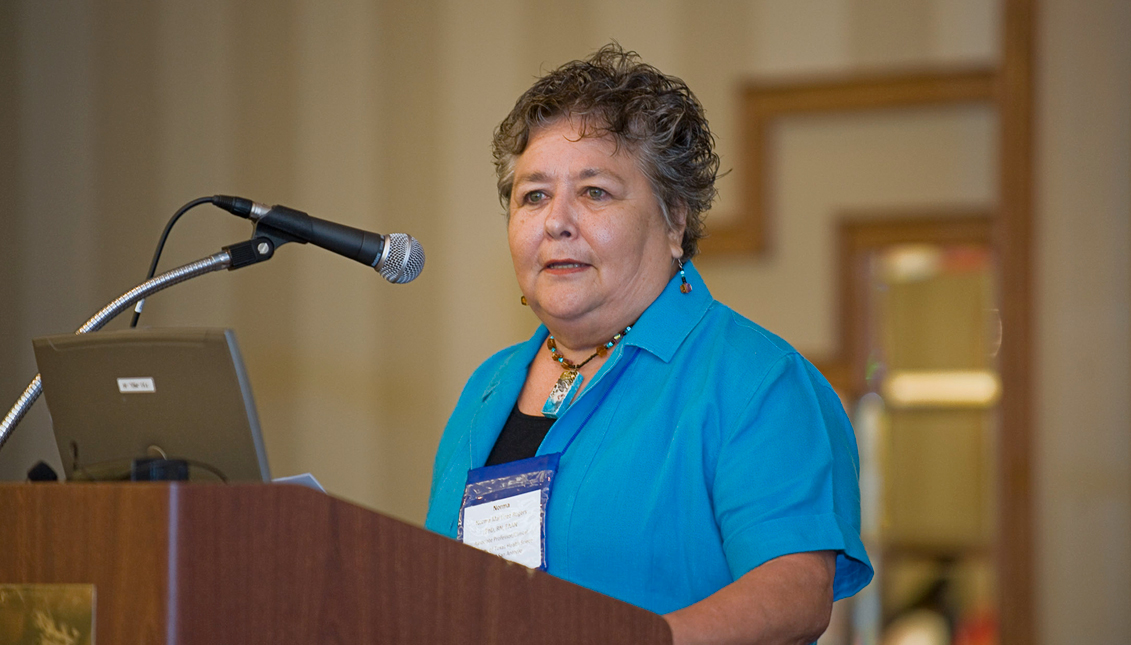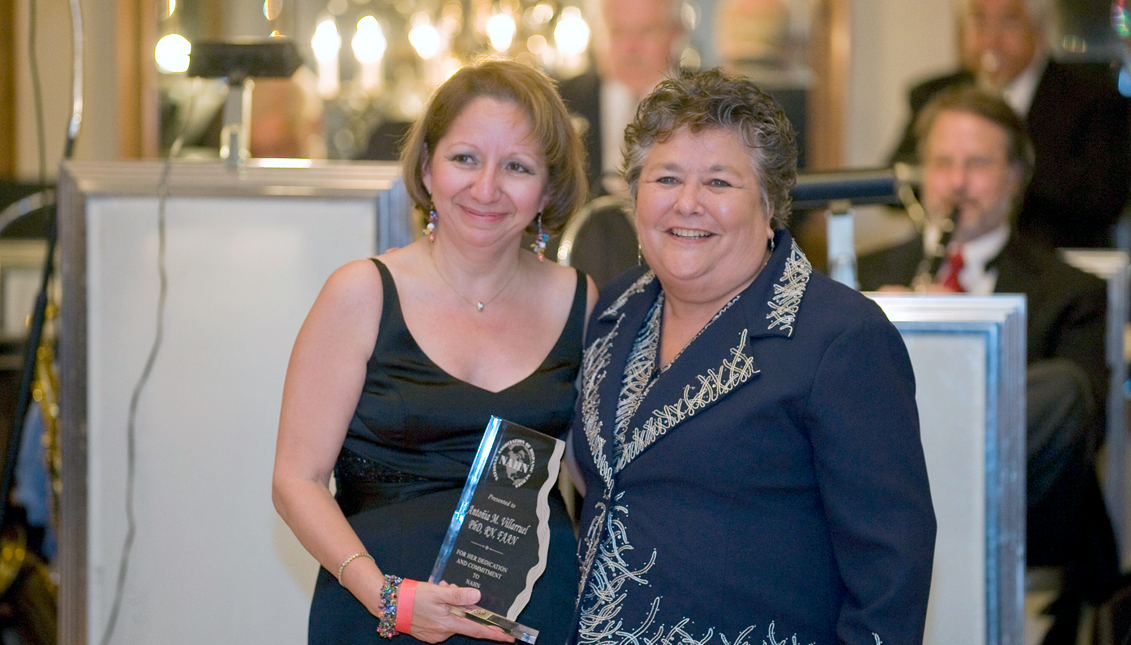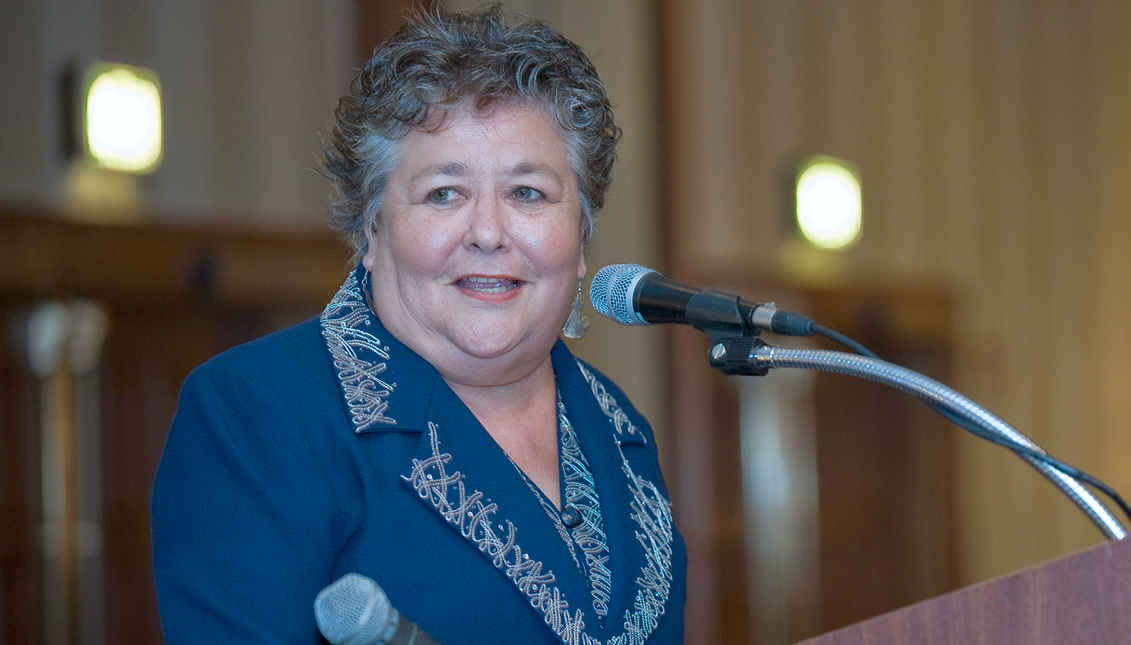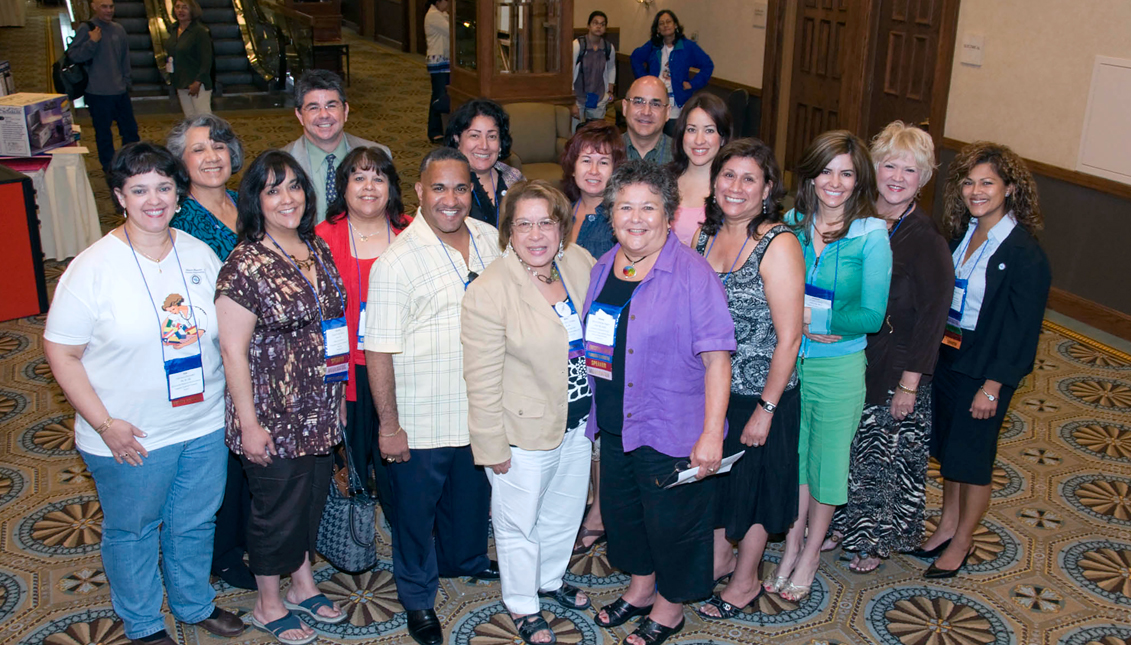
A Lifetime of Community Service
A difficult journey has guided Dr. Norma Martinez Rogers to be the most valuable of advocates.
Dr. Norma Martinez Rogers spent the early part of her life being raised in one of the first public housing projects in the United States, the Alazán-Apache Courts in western San Antonio, Texas.
Located in the most economically-disadvantaged section of the city and with a predominantly Latino population, she experienced some of the inequities that exist in society at an early age.
The youngest of four girls, Martinez Rogers recalled often having to stand in long lines for food with her mother, while her father worked three jobs to pay for his daughters to attend Catholic school.
When she was in grade school, her father moved the family out of the housing project to the opposite part of town, still economically challenged, and with a predominant Latino and African American population.
“My father and uncle built our house there, it was a very small house actually,” Martinez Rogers said in an interview with AL DÍA.
“My father and uncle built our house there, it was a very small house actually,” Martinez Rogers said in an interview with AL DÍA.
Martinez Rogers mostly spoke Spanish at home until third grade, when the nuns who ran the Catholic school she attended required students to speak English.
A quiet student who was always involved and loved school, her dedication to education was evident during a bus strike when she was in sixth grade. Martinez Rogers walked eight miles to her school while none of her sisters did the same.
The sacrifice, drive and determination she displayed became a microcosm for the lengths Martinez Rogers would go to ensure education could be obtained and doors would be opened.
With a career spanning more than five decades, as both a nurse and nurse educator, Martinez Rogers has made it her mission to be an advocate for underserved communities.

She attended Catholic school from kindergarten through 12th grade.
Growing up in a Latino household meant her parents wouldn’t allow her to move away unless she married, or went to college far from home.
“The rule at our house was either you go to college, or you find a job. And if you find a job, you have to help out the house,” she said.
As a result, Martinez Rogers attended the University of Incarnate Word, a Catholic university in San Antonio, instead of her dream school: the University of Texas, at Austin.
When going through college, Martinez Rogers also found her career options quite limited.
“It was either nursing or teaching. And I didn’t want to be a teacher,” she said. “I loved that uniform of a nurse, so I went into nursing.”
“It was either nursing or teaching. And I didn’t want to be a teacher,” she said. “I loved that uniform of a nurse, so I went into nursing.”
Martinez Rogers also got major support from her parents — as she was first in her family to attend college. In her last year, they placed a loan on their house to help her pay tuition and complete her degree.
To that end, she graduated with a bachelor’s degree in nursing before going on to pursue a master’s degree in counseling from St. Mary’s University.
Despite the initial disinterest in teaching, after earning her master’s degree, Martinez Rogers went on to teach disadvantaged junior high school students in San Antonio, promoting drug prevention.
A year after graduating from college, Martinez Rogers also married William L. Rogers, a lieutenant in the military. While working on a doctorate in physics at the University of Texas, he went to Vietnam War, where he was killed, leaving Martinez Rogers a widow and raising two adopted sons.
The tragedy also pushed her to do more in nursing.
She went on to earn another master’s degree, this time in psychiatric nursing, from the University of Texas Health Science Center, before working as a faculty member at San Antonio College.
It was there Martinez Rogers met Dr. Janie Menchaca Wilson, one of the founding members of the National Association of Hispanic Nurses, who encouraged her to pursue a Ph.D.
Several years later, she earned that Ph.D. in cultural foundations — a combination of anthropology, sociology, politics and education.

Throughout her career, Martinez Rogers has shifted in and out of nursing.
The idea of bedside nursing never interested her, and she instead focused her energy on advocacy and community service.
She was able to do so to an extent as a public health nurse in Austin for some years, as well as a director of nurses at various psychiatric hospitals.
However, Martinez Rogers’ ultimate goal was to end up at the University of Texas.
“I wanted us to have an opportunity there, and the only way I could do that was to advance my education and get into the school as a faculty member,” she said.
That dream would come true upon earning her Ph.D. in 1995, when Martinez Rogers received a call from Dr. Patty Hawken, the dean of the University of Texas Health Science Center Nursing School at the time. Hawken encouraged her to apply.
She then became a graduate faculty member at the school.
But the early years of her tenure were not smooth sailing.
Martinez Rogers recalls being told by faculty that “you’re an American now, you don’t need to speak in Spanish,” and that her days would be numbered at the School of Nursing.
“Actually I lasted longer than those people that were telling me that I wasn’t going to last long,” she said.
She also faced a number of barriers and microaggressions while pursuing her postdoctoral fellowship at Indiana University in Bloomington.
The Ku Klux Klan’s headquarters was located just 25 miles from campus, and Martinez Rogers remembers the fear she felt going out at night. She was racially profiled while at the grocery store several times, and was even denied an on-campus apartment.
Despite the difficulties, Martinez Rogers didn’t give up because she felt there were lessons to be learned and taught about the inequities Hispanics and other people of color face.
“I stayed because it was my job,” she said. “To change those barriers that I had to face. It was my job, I thought, to help other Latinos survive in that white supremacist school.”
More than 25 years later, Martinez Rogers has remained as a faculty at UT Health Science Center and continues to leave her mark, breaking barriers along the way.
Throughout the school’s more than 60-year history, Martinez Rogers is the first full-time tenured Latina professor.
“It’s an honor, but it’s a tremendous responsibility,” she said of the distinction. “Because you have to demonstrate harder that you deserve that rank and title, and I’m very fortunate that I have a dean that really supports me.”
At the end of May, Martinez Rogers retired from UT Health Science Center, and has applied to be a professor emeritus.
RELATED CONTENT
“I will be the first and only Latina that will be a professor emeritus at the School of Nursing in San Antonio,” she said.

Throughout the years, Martinez Rogers has shown immense dedication to community service and advocacy.
At UT Health Science Center, she founded Juntos Podemos, a peer mentorship program for nursing students struggling academically, after seeing that many Latinos and other students of color were taking longer to graduate than their white/non-Hispanic classmates.
The program pairs first-year nursing students with second- and third-year nursing students, who provide tips on how to academically succeed.
Martinez Rogers is also a co-founder of Martinez Street Women’s Center, an organization whose primary mission is to provide support and educational services to women and female adolescents.
When asked what obstacles make such an organization a necessity, Martinez Rogers noted poverty, low self-esteem, sexual abuse, domestic violence and family expectations as examples.
“We teach them self empowerment, taking a risk, being able to survive on your own… learning the importance of education,” said Martinez Rogers.
Her advocacy work also included asking Congress for appropriations money, as a mentor to students and other faculty members, grant writing and more — all towards the goal of aiding the underserved.
Martinez Rogers credits her parents’ love, support, and focus on education for setting a foundation for her, and transforming her into a community advocate.
“I knew when I was in third grade and learned English, I made up my mind that I was never going to be poor, I was never going to go back,” she said. “And I haven’t.”

In 2006, Martinez-Rogers was selected as a Fellow in the American Academy of Nursing, the highest honor one can achieve in the nursing profession.
The following day, a white faculty member told her that the only reason she received the award was because they were showcasing Latinos.
Rather than shun, Martinez Rogers used the moment as an opportunity to teach her about equity and inequity. She wrote the faculty member a formal letter and invited her to be on the advisory board.
She has remained on the advisory board for several years, and the two of them even recently published an article together.
“That’s how you teach,” said Martinez Rogers. “You become inclusive instead of exclusive.”
“That’s how you teach,” said Martinez Rogers. “You become inclusive instead of exclusive.”
As Dr. Martinez Rogers retires from a role she has filled for over 25 years, her work is still far from over.
Martinez Rogers will remain engaged in a variety of ways as professor emeritus — particularly as a mentor — continuing to build on the legacy she established.
As she reflects on her career, Martinez Rogers hopes her legacy is one of a “compassionate giving leader, someone who cared about people, someone who advocated for the underserved [and] someone who loved their job,” she said.
When she learned that she would be awarded with the Lifetime Achievement Award at the 2021 AL DÍA Top Nurses event, she equated it to when she attended President Obama’s inauguration in 2009.
“Who would have thought I would be here?” she remembered saying to friends and family.
“It’s been a tough journey. Very tough. And I’m honored to receive this distinction,” she said. “And I hope that I can help others receive it also.”











LEAVE A COMMENT: